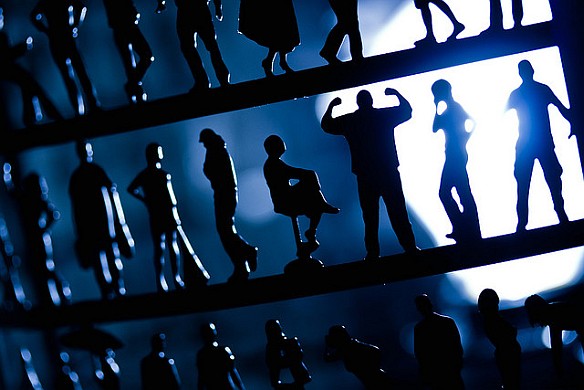My last post on Late-Capitalist Youth looked at Nietzsche’s call to control our passions, in order to gain a sense of freedom and new direction for our lives—but the Buddha looked at self-overcoming as well. To move towards a new patterning for our desires, we need to have some space for the conditioned systems of the past. We do not have the willpower to control ourselves when we continue to give into old patterns of release and association. Only when we control our past conditioning can new directions arise.
The Buddha gave a detailed account of this mechanism. The feeling of pleasure or displeasure that arises during sense experience is based on habituation from the past.
The Buddha gave a detailed account of this mechanism. The feeling of pleasure or displeasure that arises during sense experience is based on habituation from the past. For the Buddha, what we do in the instant after a habituated reaction of pleasure or pain is critical. That next intentional moment of wanting or avoiding determines the existential contribution to our future habituation. It is only in the present moment of decision that one has control over future effects of the thoughts and actions one has set in motion in the past. Through mindfulness and meditation one can develop the patience, freedom from impulse, and open mental spaciousness to actually gain a degree of intentionality in each moment of experience.
As with Nietzsche’s understanding of self-overcoming, the first step to gaining a sense of freedom is examining and dissecting our unconscious habituation. For both the Buddha and for Nietzsche, motivation and purpose remain almost entirely unconscious (for the former in the form of karma, for the latter in the form of the larger perspective and narrative that forms our identity). Human freedom, responsibility and meaning rest in the limited and often minute moments of lucid clarity in which we recognize our habits and think, act and feel in new, less afflicted patterns.
These patterns can lead us in positive or negative directions, but to know which direction they are leading, we must have a good sense of how we feel.
For the Buddha, the key is in the moment of wanting, desiring, needing, and what follows in attaching, controlling, and grasping. The sense of initial pleasure, pain or neutrality in consciousness comes into the present from past experience. The pure empty awareness in which all conscious experience takes place is filled with habituation, but we have the choice to go along with our past patterns or not. We feel that choice in our sense of desire and wanting. When I want something that feels pleasurable I continue the feedback loop. When I attach to and attempt to control what I desire, my identity forms around those objects and limits my possibilities and freedom. These patterns can lead us in positive or negative directions, but to know which direction they are leading, we must have a good sense of how we feel. If the action, thought and emotion lead to suffering, afflictions, and less freedom, it is leading us in one direction; if the action, thought and emotion lead us towards contentment, happiness, and freedom from habituation, we are headed in another direction.
Ideally we would be in a pure, empty awareness, with infinite possibilities in the reality of the moment, without the limitations of past habituations, but that might not be our current state. The Buddha recognized that such an enlightened state was possible for humans, while Nietzsche saw a much more limited form of freedom for mankind. For Nietzsche we are always within some limited perspective. Freedom lies in changing our perspective to be more in line with our real emotions and feelings. When there is discord between our perspective and our feelings, there is a sense of alienation. According to Nietzsche we have been alienated from nature, others and ourselves since the advent of the industrial revolution. Modern culture is struggling to create a narrative of meaning that makes sense of our experience. This triple alienation, still with us today, is at the heart of our thoughts, emotions and actions that leads to a sense of cynicism, hopelessness, dullness, and stupidity.
If we want something new to happen that leads us out of the current destructive and insane social, economic and political dysfunction, we would need to overcome our current cynical hedonism and develop a sense of hopeful freedom.
Both prophets see the first step towards a solution in recognition of the problem and a change in our habituation. If we don’t change at the level of direct experience, we cannot make progress. We will continue to act habitually while thinking we are acting freely. If we want something new to happen that leads us out of the current destructive and insane social, economic and political dysfunction, we would need to overcome our current cynical hedonism and develop a sense of hopeful freedom. To gain that freedom the Buddha recommends control of desire and impulse. That might get at the essence of our current dysfunctional habituation.

